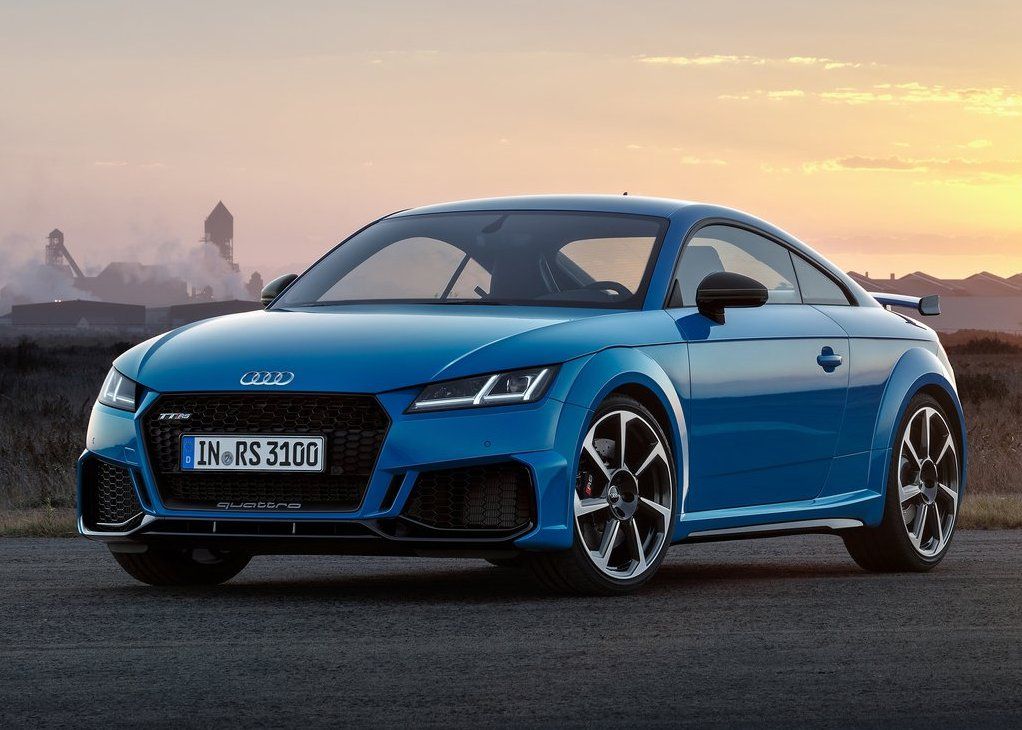In what comes as a revelation for the automotive community, Audi has announced that it'll be stopping production of its TT. The Audi TT represents the entry-level step for buyers looking for a genuine two-door sports car, but don't want to go as high as the R8 supercar. However, with the recent announcement, that option will no longer be available in the next few years.
The Ingolstadt-based luxury automaker introduced the TT back in 1998, also known as the Mk1. For its underpinnings, the Four Rings borrowed parent company Volkswagen Group's A Platform, which was also found on the Audi A3 and VW Golf at the time. Right from the start, the TT was offered as a coupe or a roadster, though the first-generation model was initially only sold with a manual gearbox. Fast-forward to 2014, and Audi released the third-generation TT at the Geneva Motor Show.
The Mk3 Audi TT incorporated an all-new MQB platform, which not only made it lighter and stronger than before, but also improved its driving dynamics. In countries such as the United Arab Emirates, the new Audi TT range starts from AED 199,000 and AED 210,000 for the base coupe and roadster trims, respectively. Meanwhile, the TT S coupe and the silly-fast TT RS coupe retail for AED 263,900 and AED 307,500, respectively. Even in UAE, sales of the TT are nothing to write home about. Its top rivals such as the Porsche 718 Cayman and Nissan's 370Z, meanwhile, see far more units leaving their respective showrooms on a regular basis.
“We will concentrate maximum resources on our key projects. This means less complexity in new models, less complexity in our range as a whole. We have eliminated almost one third of our engine-transmission combinations. And we continue to examine our portfolio for customer relevance,” said Bram Schot - Chairman of the Board of Management of AUDI AG. Making matters worse for the TT is the steady rise of future-proof electric cars and haemorrhaging losses in lieu of the diesel-gate scandal among other factors. As automakers continue their push towards electrification and future stability, models that no longer generate revenue and aren't compatible with their predicted future business models, will be dropped.
However, despite the announcement, it isn't yet clear when the actual end of production date might be. With that being said, Audi's prediction is that electric cars will account for up to 40% of worldwide sales by 2025. So, keeping that in mind, the TT's end date might not be too far away, after all. In the meantime, Audi has launched the TT Quantum Gray Edition - could this be the final one? Another uncertainty lies with the future of the R8 supercar. Bram Schot stated, “Do we need a successor with a combustion engine? Does this fit in with our vision? The discussion will give us an answer to that.” Seems like only time can tell us if the R8 will also be axed or not.
Audi has also planned to invest 40 billion Euros by 2023 towards its future growth. According to its investment plan, up to 14 billion Euros will be set aside for electric mobility and automated driving. The German marque seems to be hot on the heels of its rivals such as BMW, Mercedes-Benz, and Tesla. Unfortunately, this means the TT will have to go the way of the dodo. However, if you really want a TT in your life and have the cash to spare, head straight for the bonkers RS model. Its 2.5-litre, turbocharged five-cylinder engine develops 400 hp and 480 Nm of torque. This equates to a 0-100 km/h time of just 3.7 seconds, plus a top speed of 280 km/h.
The Mk3 Audi TT incorporated an all-new MQB platform, which not only made it lighter and stronger than before, but also improved its driving dynamics. In countries such as the United Arab Emirates, the new Audi TT range starts from AED 199,000 and AED 210,000 for the base coupe and roadster trims, respectively. Meanwhile, the TT S coupe and the silly-fast TT RS coupe retail for AED 263,900 and AED 307,500, respectively. Even in UAE, sales of the TT are nothing to write home about. Its top rivals such as the Porsche 718 Cayman and Nissan's 370Z, meanwhile, see far more units leaving their respective showrooms on a regular basis.
“We will concentrate maximum resources on our key projects. This means less complexity in new models, less complexity in our range as a whole. We have eliminated almost one third of our engine-transmission combinations. And we continue to examine our portfolio for customer relevance,” said Bram Schot - Chairman of the Board of Management of AUDI AG. Making matters worse for the TT is the steady rise of future-proof electric cars and haemorrhaging losses in lieu of the diesel-gate scandal among other factors. As automakers continue their push towards electrification and future stability, models that no longer generate revenue and aren't compatible with their predicted future business models, will be dropped.
However, despite the announcement, it isn't yet clear when the actual end of production date might be. With that being said, Audi's prediction is that electric cars will account for up to 40% of worldwide sales by 2025. So, keeping that in mind, the TT's end date might not be too far away, after all. In the meantime, Audi has launched the TT Quantum Gray Edition - could this be the final one? Another uncertainty lies with the future of the R8 supercar. Bram Schot stated, “Do we need a successor with a combustion engine? Does this fit in with our vision? The discussion will give us an answer to that.” Seems like only time can tell us if the R8 will also be axed or not.
Audi has also planned to invest 40 billion Euros by 2023 towards its future growth. According to its investment plan, up to 14 billion Euros will be set aside for electric mobility and automated driving. The German marque seems to be hot on the heels of its rivals such as BMW, Mercedes-Benz, and Tesla. Unfortunately, this means the TT will have to go the way of the dodo. However, if you really want a TT in your life and have the cash to spare, head straight for the bonkers RS model. Its 2.5-litre, turbocharged five-cylinder engine develops 400 hp and 480 Nm of torque. This equates to a 0-100 km/h time of just 3.7 seconds, plus a top speed of 280 km/h.


